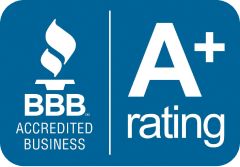You’re not the only one who will soon be 65 but isn’t prepared to retire. Twenty percent or so of Americans over 65 are still employed. And while you aren’t quite ready to leave your job just yet, Medicare may be a new choice for your medical insurance that you should take into account. This article contrasts Medicare with private health insurance and offers some additional information to take into account while making a decision about coverage.

What Is the Difference Between Health Insurance and Medicare?
The distinction between private health insurance and Medicare is that the former is primarily for American citizens 65 and older and offers more coverage options than the latter, whereas dependents may be covered under private health insurance. Medicare offers a wide range of coverage options, and within those options, different levels of coverage are available in different plans.
Choosing coverage when looking for private health insurance isn’t that difficult. If it’s an employer plan, you must pick from a set of options that your business has offered. You can compare plans based on premiums, out-of-pocket expenses, and coverage disparities if it is an Affordable Care Act (ACA) plan. The Summary of Benefits for the plan frequently includes a list of these items.
You can analyse your options with the aid of Abby’s Consulting Services. You can compare those types of plans if you choose a Medicare combination to locate the one that offers the best price and coverage for your requirements. View more information about what each plan will cover after choosing a plan combination that suits your needs. Compare plans right away.
| Medicare Coverage Combinations | |
| Original Medicare | Original Medicare covers hospital and medical insurance (Parts A and B). This is how Medicare describes its basic level of coverage, which includes deductibles and coverage holes. For instance, prescription medication, dental, and vision coverage are not included under Original Medicare. |
| Original Medicare + Medicare Supplement | With this arrangement, basic Medicare coverage is supplemented by Medicare Supplement. The out-of-pocket expenses that Original Medicare does not cover are intended to be covered by Medicare Supplement insurance. These plans, for instance, may pay for deductibles, copays, or coinsurance amounts. |
| Original Medicare + Medicare Supplement + Prescription Drug | This package also includes Medicare Supplement insurance and covers prescription drug costs. This might make covered prescriptions less expensive. |
| Medicare Advantage (with prescription drug coverage included) | All-in-one plans are another name for Medicare Advantage (Part C) plans. Many Medicare Advantage plans include prescription drug plan coverage in addition to Part A and Part B coverage. These insurance frequently include cover hearing, vision, and dental services. These plans could resemble private health insurance plans the most because they have many networks and well-known coverage. |
Medicare vs. Private Health Insurance: Networks
Medicare is the industry leader in terms of networks. If you don’t want to restrict your medical care to a particular network of doctors or facilities, Original Medicare is probably your best option. If you have Original Medicare, you can see any practitioner who takes it. You can keep this independence while also enjoying lower out-of-pocket costs if you add a Medicare Supplement plan.
Only a small number of clinics, hospitals, and other healthcare facilities are covered by private health insurance policies. Together, these locations and individuals make up a network. If you travel outside of your network, your health insurance plan won’t cover you unless there is an emergency. This could grow expensive because it’s not always clear which providers and locations are covered. For instance, a hospital in your network might have selected a doctor from outside your network.
Medicare vs. Private Health Insurance: Premiums
Medicare may not perform as well in this area as your employer-sponsored or private Affordable Care Act (ACA) coverage. The standard monthly employer contribution is $108.
In contrast to the majority of people who will not have to pay a premium for Medicare Part A, the typical Medicare Part B premium in 2022 will be $170.10. Parts A and B (Original Medicare) are the core elements of coverage, and delaying your participation in any one may incur charges.
The Medicare Part B premium for essential coverage may be high, but certain Medicare Advantage plans may have no premium at all. These plans won’t reduce your Part B premiums, but they might provide extra coverage for little to nothing.
How Much Does Medicare Pay Compare to Private Insurance?
Medicare pays a different amount compared to private insurance, and this amount can change depending on the services provided. However, a 2020 KFF analysis found that private insurance payment rates for inpatient hospital services were 1.6–2.5 times higher than Medicare prices.
Medicare vs. Private Health Insurance: Out-of-Pocket Costs
Another factor you can consider is your annual out-of-pocket spending. Some of these include copays, coinsurance, and deductible amounts. Medicare negotiates as a national programme with negotiating strength, unlike private health insurance companies, which negotiate as individual businesses. Through this discussion, the amount a healthcare provider may bill you is decreased. Lower copay and coinsurance fees will be reflected in these negotiated prices.
You must also consider deductibles when comparing Medicare and commercial health insurance.
| Medicare Deductibles | Private Employer Deductibles | Private Health Insurance Deductibles |
|---|---|---|
| The Part A deductible for Medicare is $1,556. The Part B Medicare deductible is $233.3. | An employer insurance plan typically has a $1,400 deductible each year.
This is a national average and might not accurately represent your premium amount. It is recommended to compare using the data from your plan. | The typical yearly medical deductible for a bronze-level health insurance plan is $1,730.6.
This is a national average and might not accurately represent your premium amount. It is recommended to compare using the data from your plan. |
Can You Have Medicare and Private Health Insurance?
Yes, even if you sign up for Medicare, you can keep your commercial health insurance coverage. However, it’s crucial to consider the expenditures that having two active plans may incur (like paying two separate premiums). You might also want to learn which plan will be charged for services initially.
Your coverage would be regarded as a duplicate for ACA plans. Benefits from Medicare and ACA plans cannot be combined. Medical expenses would then be split between the two plans. Maintaining your ACA plan might also require you to pay future Medicare late enrollment fines.
Affordable Care Act Subsidies & Medicare
Once you turn 65, if you have an Affordable Care Act (ACA) plan, you can continue to be covered. However, after your Medicare Part A coverage starts, you are no longer eligible for any premium tax credits (or subsidies). You must inform your insurance provider of your decision to maintain your ACA plan in order to cease any subsidy payments. If not, you might have to repay them when you file your taxes.
Small Business Health Insurance Options Plans (SHOP)
You might be able to maintain your employer-provided coverage through SHOP if your employer has between 1 and 50 employees.7 By continuing with this plan, you can put off signing up for Medicare. Penalties for late enrollment won’t apply to you until after this coverage expires.
Ask your employer if your current employer-based coverage will continue to serve as your primary coverage if you work for a company with a different level of employment. It can be in your best advantage to enrol in Medicare when you first become eligible if it will end up being a secondary coverage option. If not, your employer’s insurance plan can decline to pay until Medicare is billed first. You could end up with an expensive and annoying coverage gap as a result.
The Downside of Delaying Medicare
If you sign up for Medicare after your Initial Enrollment Period (IEP) has passed, there are many provisions that will charge you a fee. Additionally, if you put off signing up for a Medicare Supplement plan, you might have to pay more. It’s crucial to remember that only a select few plans let you put off signing up for Medicare without incurring costs.
| Late-Enrollment Penalties | |
| Medicare Part A | Since the majority of people have worked in America for at least ten years, Part A is provided without a charge for them. There is a fee for postponing enrollment, nevertheless, for individuals who must purchase this insurance. If you don’t enrol for a year, your monthly premium could go up by 10%. Your delayed coverage is subject to a penalty that is in effect for twice as long.
|
| Medicare Part B | Delaying enrollment in Medicare has a lifelong cost in the form of the Part B penalty. Your premiums may go up by 10% as a result of this late enrollment fee for each year you wait to enrol in coverage. For instance, there would be a 20% premium penalty if your IEP ended in December 2017 and you waited until March 2020 to enrol in Part B. (two full 12-month periods without coverage). |
| Medicare Part D | The Part D penalty also lasts a lifetime and kicks in after 63 days without prescription drug coverage. For each month you were uninsured, the penalty might raise your premium by 1% (of the national base beneficiary premium, which in 2022 will be $33.37). For instance, a 14% fine, or $4.70 per month, would apply if you went without prescription drug coverage from December 2020 through February 2022 (a period of 14 months). |
| Increased Premiums | |
| Medicare Supplement (Medigap) Plans | Applying for a Medigap plan after your enrollment period is over is not subject to any penalty. You won’t, however, receive the finest deal attainable. This is so that you can enroll in a Medigap plan during your IEP without any medical underwriting. Your medical history, age, and other characteristics may be taken into account to raise your premium once this period has passed. Your health could also be a factor in whether you get coverage. |
Is Medicare Better than Private Insurance?
Medicare vs. private health insurance comparison is a crucial decision that only you can make. You can acquire free online Medicare estimates from Abby’s Consulting Services and compare them to your current plan.
Compare health coverage, out-of-pocket expenses, and premiums. Additionally, Abby’s Consulting Services can assist you in determining which plan best meets your requirements. After you provide your answers, we will rank the plans that best meet your needs.
Contact Abby’s Consulting Services right away to discuss your alternatives.
What Is the Difference Between Health Insurance and Medicare?
The distinction between private health insurance and Medicare is that the former is primarily for American citizens 65 and older and offers more coverage options than the latter, whereas dependents may be covered under private health insurance. Medicare offers a wide range of coverage options, and within those options, different levels of coverage are available in different plans.
Choosing coverage when looking for private health insurance isn’t that difficult. If it’s an employer plan, you must pick from a set of options that your business has offered. You can compare plans based on premiums, out-of-pocket expenses, and coverage disparities if it is an Affordable Care Act (ACA) plan. The Summary of Benefits for the plan frequently includes a list of these items.
You can analyse your options with the aid of Abby’s Consulting Services. You can compare those types of plans if you choose a Medicare combination to locate the one that offers the best price and coverage for your requirements. View more information about what each plan will cover after choosing a plan combination that suits your needs. Compare plans right away.
| Medicare Coverage Combinations | |
| Original Medicare | Hospital and medical insurance are covered by Original Medicare (Parts A and B). Medicare’s base level of coverage, which includes deductibles and coverage gaps, is described as such. For instance, Original Medicare excludes coverage for prescription drugs, dental, and vision. |
| Original Medicare + Medicare Supplement | With this arrangement, basic Medicare coverage is supplemented by Medicare Supplement. The out-of-pocket expenses that Original Medicare does not cover are intended to be covered by Medicare Supplement insurance. These plans, for instance, may pay for deductibles, copays, or coinsurance amounts. |
| Original Medicare + Medicare Supplement + Prescription Drug | This package combines Medicare Supplement with coverage for medications. There may be a financial benefit for covered drugs. |
| Medicare Advantage (with prescription drug coverage included) | All-inclusive plans are another name for Medicare Advantage (Part C) plans. Some Medicare Advantage plans also cover prescription drugs, unlike traditional Medicare. Coverage for dental care, eye exams, and audiologist visits are common extras with these policies. These plans may be the most comparable to individual health insurance policies due to their varied provider networks and common services. |
Medicare vs. Private Health Insurance: Networks
When it comes to networks, Medicare is the leader. Original Medicare is most likely your best choice if you don’t want to limit your medical care to a select group of practitioners or facilities. You can see any provider who accepts Original Medicare if you have it. If you add a Medicare Supplement plan, you can preserve this freedom while also enjoying lower out-of-pocket expenses.
There are only a few offices, hospitals, and healthcare providers that are contracted with by private health insurance policies. These places and people together form up a network. Unless it’s an emergency, you won’t have any coverage from your health insurance plan if you go outside of your network. Since it’s not always obvious which providers and places are covered, this might get expensive. An in-network hospital, for instance, might have chosen a medical professional who is not in your network.
Medicare vs. Private Health Insurance: Premiums
Your private Affordable Care Act (ACA) or employment plan may outperform Medicare in this area. The regular employer contribution is $108 per month.
The typical Medicare Part B premium in 2022 will be $170.10, whereas the majority of people would pay no premiums for Medicare Part A. The fundamental components of coverage are Parts A and B (Original Medicare), and postponing your enrollment in either can result in costs.
For basic coverage, the Medicare Part B premium could be expensive, but some Medicare Advantage plans may charge nothing at all. Your Part B rates won’t be eliminated by these plans, but they may offer additional coverage for little or nothing.
How Much Does Medicare Pay Compare to Private Insurance?
Medicare pays a different amount compared to private insurance, and this amount can change depending on the services provided. However, a 2020 KFF analysis found that private insurance payment rates for inpatient hospital services were 1.6–2.5 times higher than Medicare prices.
Medicare vs. Private Health Insurance: Out-of-Pocket Costs
Your yearly out-of-pocket expenses are something else you might take into account. Copays, coinsurance, and deductible sums are a few of them. Private health insurance plans bargain as individual businesses, but Medicare negotiates as a national programme with negotiating power. The amount that a healthcare practitioner can charge you is reduced as a result of this negotiation. These bargained pricing will be reflected in lower copay and coinsurance fees.
When comparing Medicare and private health insurance, you need also take deductibles into account.
| Medicare Deductibles | Private Employer Deductibles | Private Health Insurance Deductibles |
|---|---|---|
| The Medicare Part A deductible is $1,556. Medicare Part B has a $233 deductible. | The typical yearly deductible for an employer-sponsored health insurance plan is $1,400.
| The typical yearly medical deductible for a bronze-level health insurance plan is $1,730.
|
Can You Have Medicare and Private Health Insurance?
Yes, even if you sign up for Medicare, you can keep your commercial health insurance coverage. However, it’s crucial to consider the expenditures that having two active plans may incur (like paying two separate premiums). You might also want to learn which plan will be charged for services initially.
Your coverage would be regarded as a duplicate for ACA plans. Benefits from Medicare and ACA plans cannot be combined. Medical expenses would then be split between the two plans. Maintaining your ACA plan might also require you to pay future Medicare late enrollment fines.
Affordable Care Act Subsidies & Medicare
Once you turn 65, if you have an Affordable Care Act (ACA) plan, you can continue to be covered. However, after your Medicare Part A coverage starts, you are no longer eligible for any premium tax credits (or subsidies). You must inform your insurance provider of your decision to maintain your ACA plan in order to cease any subsidy payments. If not, you might have to repay them when you file your taxes.
Small Business Health Insurance Options Plans (SHOP)
You might be able to maintain your employer-provided coverage through SHOP if your employer has between 1 and 50 employees.7 By continuing with this plan, you can put off signing up for Medicare. Penalties for late enrollment won’t apply to you until after this coverage expires.
Ask your employer if your current employer-based coverage will continue to serve as your primary coverage if you work for a company with a different level of employment. It can be in your best advantage to enrol in Medicare when you first become eligible if it will end up being a secondary coverage option. If not, your employer’s insurance plan can decline to pay until Medicare is billed first. You could end up with an expensive and annoying coverage gap as a result.
The Downside of Delaying Medicare
If you sign up for Medicare after your Initial Enrollment Period (IEP) has passed, there are many provisions that will charge you a fee. Additionally, if you put off signing up for a Medicare Supplement plan, you might have to pay more. It’s crucial to remember that only a select few plans let you put off signing up for Medicare without incurring costs.
| Late-Enrollment Penalties | |
| Medicare Part A | People who have worked for at least 10 years in the United States are eligible for Part A without paying a premium. However, there is a fee for individuals who are mandated to get this insurance and want to wait until the last minute to sign up. For each year you wait to enrol, your premium might climb by 10%. A penalty of this kind will remain in effect for twice as many years as your coverage gap.
|
| Medicare Part B | Delaying Medicare coverage will result in a permanent penalty known as the Part B late enrollment penalty. If you wait too long to get health insurance, you may have to pay a late enrollment fee equal to 10% of your yearly rates. A 20% premium penalty would apply, for instance, if you did not enrol in Medicare Part B until March 2020 after your IEP ended in December 2017. (two full 12-month periods without coverage). |
| Medicare Part D | If you go more than 63 days without prescription medication coverage, you will also incur a permanent Part D penalty. Every month that you go without health insurance could result in a 1% (of the national base beneficiary premium, or $33.37 in 2022) increase in your premium. The penalty would be 14%, or $4.70 per month, if you went without prescription medication coverage from December 2020 through February 2022 (14 months). |
| Increased Premiums | |
| Medicare Supplement (Medigap) Plans | You can sign up for a Medigap policy at any time, not just during open enrollment. It’s true that you won’t pay the lowest feasible price. And that’s because during your IEP, you can sign up for a Medigap plan without having to undergo any sort of medical underwriting whatsoever. Your premium may be adjusted upwards based on your age, health status, and other variables once this period has expired. Your health status may be used as a reason for declining coverage. |
Is Medicare Better than Private Insurance?
Medicare vs. private health insurance comparison is a crucial decision that only you can make. You can acquire free online Medicare estimates from Abby’s Consulting Services and compare them to your current plan.
Compare health coverage, out-of-pocket expenses, and premiums. Additionally, Abby’s Consulting Services can assist you in determining which plan best meets your requirements. After you provide your answers, we will rank the plans that best meet your needs.
More to explorer

What’s the Penalty if You Don’t Sign Up for Medicare?
Summary: Some people are unaware that delaying enrolling in Medicare after becoming eligible may have consequences. The majority of people don’t pay

Medicaid and Medicare Savings Programs
Key Takeaways Medicaid is a type of health insurance available to those with low earnings. It is distinct from Medicare, which provides

Does Medicare Cover Dental Care?
Original Medicare And Dental Coverage does Medicare cover dental? Initial Medicare Generally speaking, dental treatment is not covered by Parts A and





